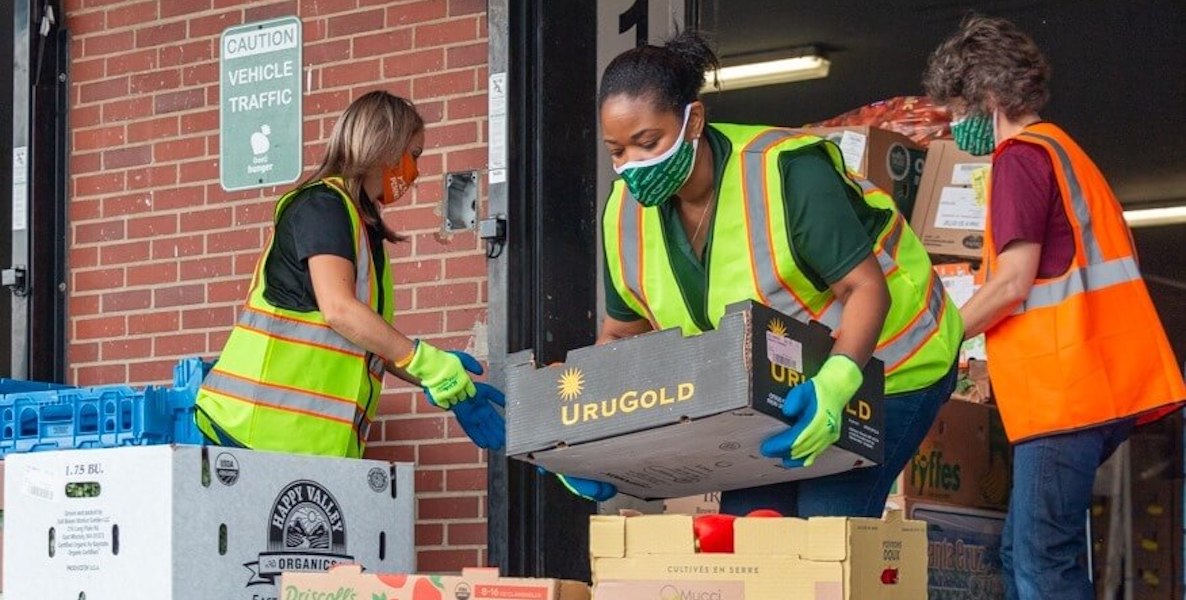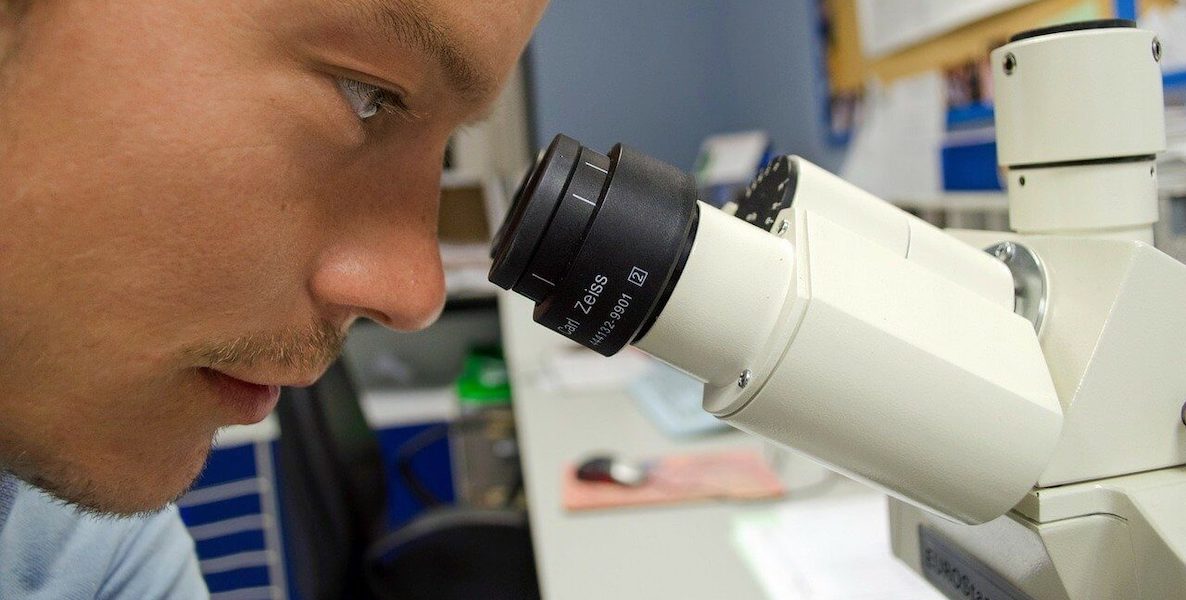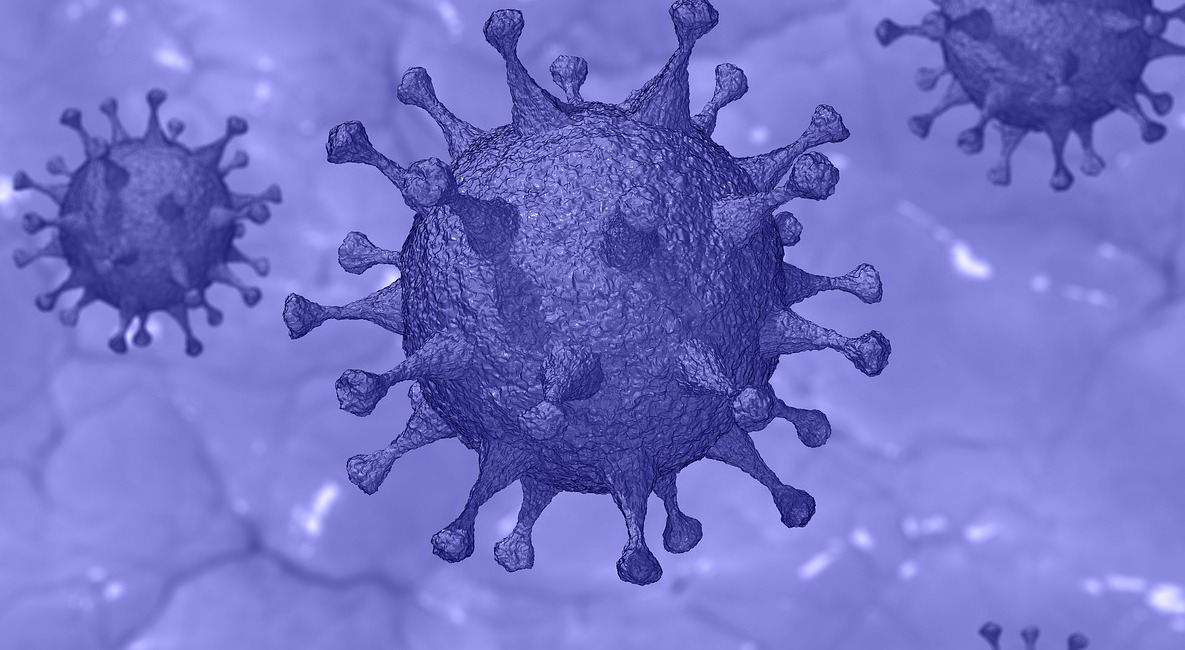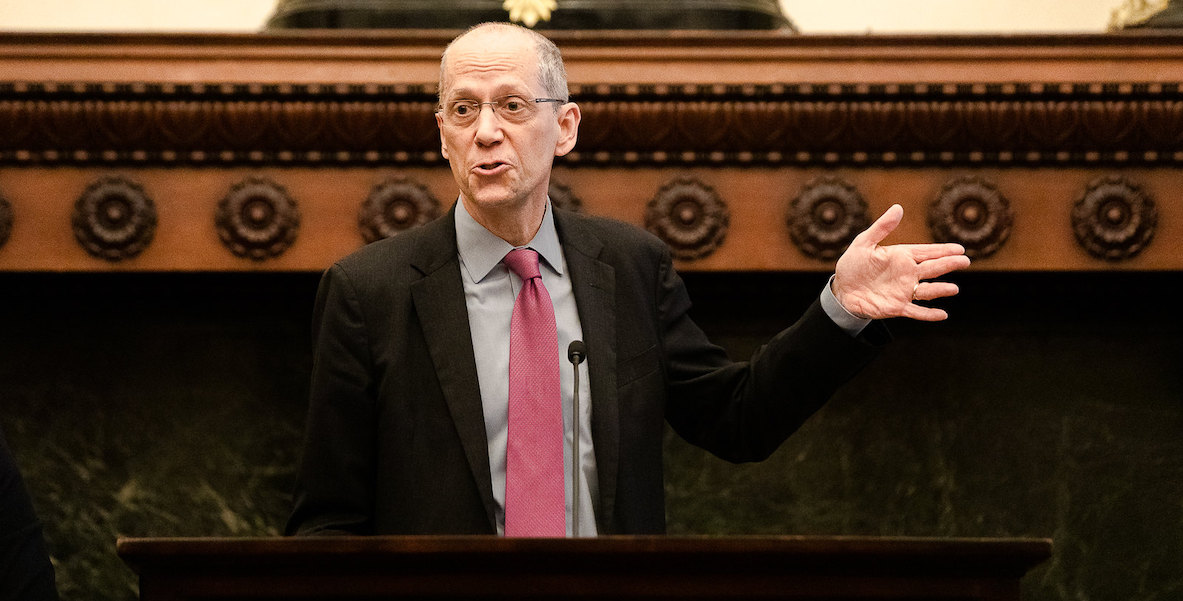Flailing about for a way to respond to the coronavirus outbreak, Pres. Trump’s administration has grabbed the medical device and pharmaceutical industries up in a bear hug.
![]() That means Philadelphia area companies and research institutions that have already been working on efforts to better understand and detect the virus are now at the tip of the spear of the nation’s disorganized response effort.
That means Philadelphia area companies and research institutions that have already been working on efforts to better understand and detect the virus are now at the tip of the spear of the nation’s disorganized response effort.
“You have to embrace the private sector,” said Dr. Anthony Fauci, the federal government’s top expert on infectious disease, at a White House press conference Friday afternoon.
The private sector response includes the work of Philly’s own Biomeme, which started working on a test for the virus on January 23—soon after the genome sequence was shared with scientists around the world.
On Friday morning, news broke that the Food and Drug Administration granted approval to the first commercially available system for detecting whether someone is infected with the coronavirus.
![]() The test developed by Switzerland-based Roche Holdings AG runs on a device that is already installed in locations all around the globe, and can spit out results in four hours, according to Bloomberg, which said the company will be able to provide millions of tests every month.
The test developed by Switzerland-based Roche Holdings AG runs on a device that is already installed in locations all around the globe, and can spit out results in four hours, according to Bloomberg, which said the company will be able to provide millions of tests every month.
The FDA subsequently granted a similar emergency use authorization to Massachusetts-based Thermo Fisher for another diagnostic test.
One of Philadelphia’s chief industries is the research and development of medical technology, and indeed Philly researchers are part of the global race to get a handle on the new virus that has triggered a pandemic and killed thousands.
The new Penn research center sent out an inaugural tweet on Thursday that consisted of one word: “Testing.”
Biomeme, which is based in Center City, has developed and is marketing “Go-Strips,” which the company says can be used to detect the presence of coronavirus. Biomeme biologist Jesse vanWestrienen cautions that the strips have only been tested on synthetic targets—not human samples—so far. And the Biomeme test kit is right now only permitted for research purposes—not for diagnosing patients.
Now the company is “gearing up” for distribution of its research tool, while simultaneously planning to make a submission to the FDA for emergency use authorization, which would enable more uses for the testing product, according to a spokesperson.
![]() President Trump has sounded a theme of loosening regulatory constraints in response to the pandemic, and the FDA touted its fast turnaround approving Thermo Fisher’s authorization within 24 hours of receiving the request.
President Trump has sounded a theme of loosening regulatory constraints in response to the pandemic, and the FDA touted its fast turnaround approving Thermo Fisher’s authorization within 24 hours of receiving the request.
“We’ll remove or eliminate every obstacle necessary to deliver our people the care that they need and that they’re entitled to,” Trump said.
But the president has already repeatedly overstated the nation’s capacity to respond to the outbreak. In just this past week, Trump has also botched key facts during an Oval Office announcement on Wednesday night and vastly exaggerated efforts underway to create a screening website for members of the public who may have fallen ill.
The Biomeme test strips, which were developed over a span of two weeks, have a few benefits over other testing equipment, according to the Biomeme website, mostly in the area of speed and convenience. The test strips are shelf-stable for 18 months without need for refrigeration, according to the company.
The company also claims that results can be ready in under an hour with one of its $10,000 smart phone-connected thermocyclers.
With financing from celebrity billionaire investor Mark Cuban, Biomeme was founded to democratize scientific testing, harnessing the power of smartphones and employing a simple user interface so practically anyone could conceivably use the technology in the field, according to a 2014 write-up in Wired.
If the Biomeme tests are effective and reliable, they could aid in the collective response to the pandemic, where knowing who is infected is crucial to containing the disease.
On Friday, Dr. Deborah Birx, the administration’s coronavirus response coordinator, said that the other newly approved tests should put out results within 24 hours, which she said is similar to the earlier government tests that have been used.
Biomeme is not the only place where Philadelphia’s medical researchers are grappling with the virus that has brought the world economy to its knees and forced people to cut off physical contact with friends and colleagues.
In the Greater Philadelphia region, a little more than 1 percent of workers are employed in the life sciences sector, and the $6.3 billion in life sciences exports from the region in 2012 accounted for nearly 20 percent of the area’s total exports of goods and services, according to a report put together by the Ben Franklin Technology Partners of Southeastern Pennsylvania and other organizations.
One of Philadelphia’s chief industries is the research and development of medical technology, and indeed Philly researchers are part of the global race to get a handle on the new virus that has triggered a pandemic and killed thousands.
While those figures may have fluctuated over the years, biotechnology continues to be a major industry in Philadelphia and its suburbs. As the world struggles to respond to the coronavirus, that industry takes on added importance.
![]() At The Wistar Institute, the nation’s first non-profit biomedical research institution, the lab led by David Weiner is working to expedite a vaccine that would protect people from the new coronavirus, according to a spokesperson. Wistar announced its vaccine effort on January 23, and the team working on the project includes another local company—Inovio, which is based in Montgomery County.
At The Wistar Institute, the nation’s first non-profit biomedical research institution, the lab led by David Weiner is working to expedite a vaccine that would protect people from the new coronavirus, according to a spokesperson. Wistar announced its vaccine effort on January 23, and the team working on the project includes another local company—Inovio, which is based in Montgomery County.
On Friday, though, some Inovio investors sued, claiming CEO J. Joseph Kim “made false and misleading statements to the market” overstating the progress the company has made developing a coronavirus vaccine, and Citron Research has called for an investigation by the Securities and Exchange Commission, according to Law360.
The University of Pennsylvania’s Perelman School of Medicine has launched the Penn Center for Research on Coronavirus and Other Emerging Pathogens.
The Penn center will conduct research under biosafety level three containment, a level of precaution that is used for handling the bacteria that causes tuberculosis, according to the Centers for Disease Control and Prevention. That’s one step down from the biosafety level that handles ebola.
The center will be led by Professors Susan Weiss and Frederic Bushman, and its work could add to the public and scientific understanding of the virus.
“Already Penn researchers are expanding stocks of SARS-CoV-2 and beginning studies of viral replication and inhibition,” read a message on the center’s webpage. “The Center is working to expand these efforts and to create new research opportunities in this area.”
The new center sent out an inaugural tweet on Thursday that consisted of one word: “Testing.”
Want more local tech news? Check out these related pieces
Image by PublicDomainPictures / Pixabay






